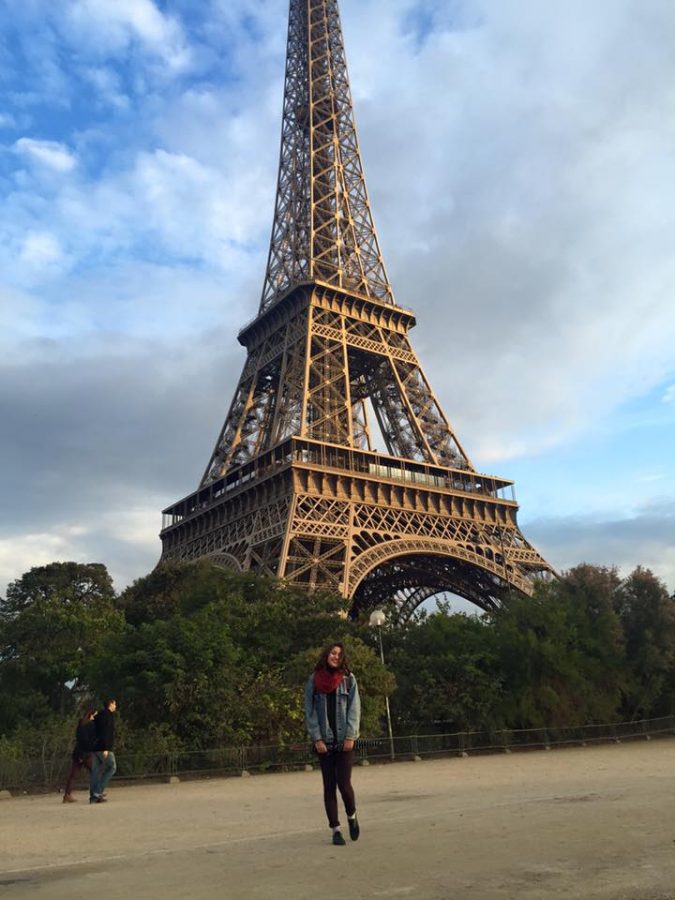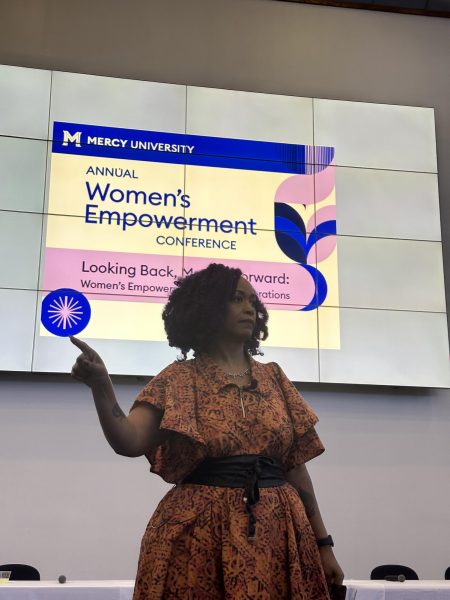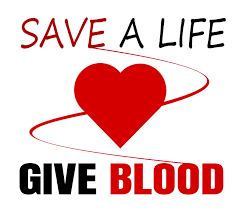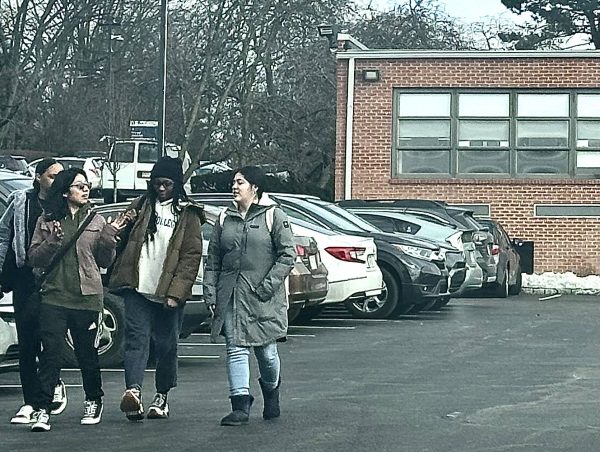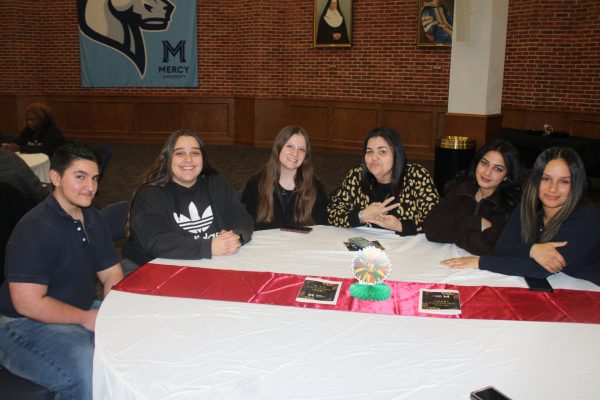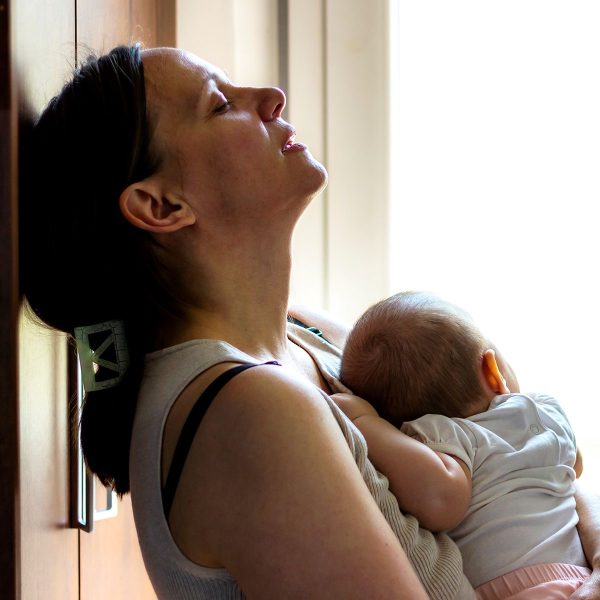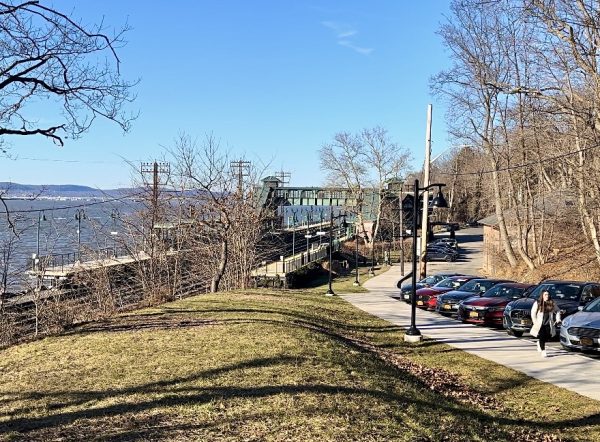Four Mavericks Abroad In Paris During Attacks
Mercy Experts Weigh In On The State of Terrorism And ISIS
It was an attack that shook not only a city or a country but the whole world. An attack that was so vicious and cruel, it took the innocent lives of sons, daughters, friends, and family.
What occurred on Nov. 13 was horrendous and unfathomable. A series of coordinated terrorist attacks in Paris and Saint-Denis, killing 130 people through the style of suicide bombings and mass shootings.
For millions around the world, eyes were glued to their television screens, watching the terror unfold before their eyes and feeling fear rise within them.
Four Mercy College students were studying abroad in Paris that terrible night. Jazmia Dibra and Abigail Smith recalled the sheer terror they experienced to The Impact.
The night prior to the attacks left an eerie feeling inside Dibra, who for some reason felt something terrible was going to happen that day due to Smith being pickpocketed the night before. Visibly shaken, Smith woke up Friday morning debating traveling to Brussels.
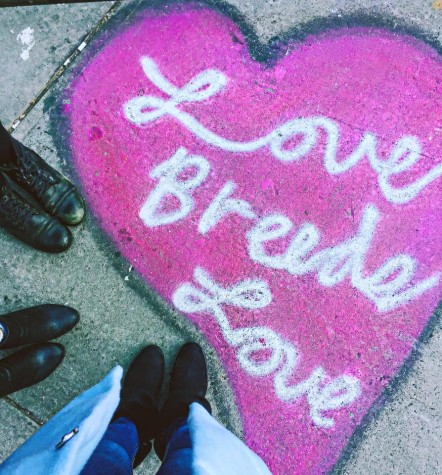
“I didn’t think there was any point in staying in Paris when I made plans for the whole weekend with friends, so I took the bus and used a stranger’s phone to notify my friends that I had boarded safely.”
Already spooked about the day being Friday the 13th, Dibra called her mother and told her there was bad “juju going on” around here.
“I told her to light sage and pray for me because I really felt that something bad was about to happen.”
Dibra explained that the rest of the day had continued to be strange for her. Without Smith to pal around with, she debated heading to London or Barcelona for the weekend. However, she decided that she would save her money and enjoy Paris for the weekend instead.
“I was planning to go to a cafe to eat and enjoy the city and maybe practice some French, but I was caught up on Facetime with my best friend from home,” Dibra said.
After speaking with her friend, Dibra noticed that another student studying abroad from Mercy in Barcelona had sent her a message.
“I got a message on Facebook from my friend Sam asking if I was safe,” Dibra said. “I said yes, but I was confused.”
She soon realized the attack was walking distance from her apartment.
“At the time, the death toll was only at five,” Dibra added.
This was when Dibra realized people around her were dying. She was alone in her apartment and didn’t know what to do, like most of the citizens living in Paris.
“My neighbor messaged me and asked where I was, he told me to stay indoors,” said Dibra. “We passed each other cigarettes through the window and he invited me next door so that we could watch the news together.”
As Dibra and her neighbor watched the news, they saw scene after scene of terrified civilians scurrying to find cover unraveling around where they reside.
“These people were shooting people in the cafes and streets, then they hit the Bataclan,” Dibra began to say. It was a venue she was quite familiar with.
“My school, the American Business School, held an event there two weekends prior to the attacks.”
Blocks away, she realizes how lucky she was that night.
“It could’ve been anyone. It could have easily been one of us,” Dibra added.
Every second, the news anchors announced new breaking details about more attacks around Dibra. The importance of staying vigilant was emphasized.
“They kept saying that the people in the Bataclan were hostages held for ransom,” said Dibra. “ Yet it was clear that these people were going to be slaughtered.”
The story took a personal turn when her friend was injured in the attacks.
“My friend Walid was shot in the leg. He was scared and nervous. I was traumatized, and was hurting for humanity,” said Dibra.
The president of France, Francois Hollande, announced he was closing borders.
“He was angered and hurt, you could hear it in his voice,” said Dibra. “I was concerned for Abigail.”
Dibra texted friends to make sure Smith got to Brussels safely.
“It all happened so fast,” said Smith, “Everyone’s phones were going off notifying them of the attacks.”
“I spoke to Mia and she was freaking out,” Smith added. “My parents had no way of contacting me, so I called my mother. She wanted me to come home, but I couldn’t think straight.”
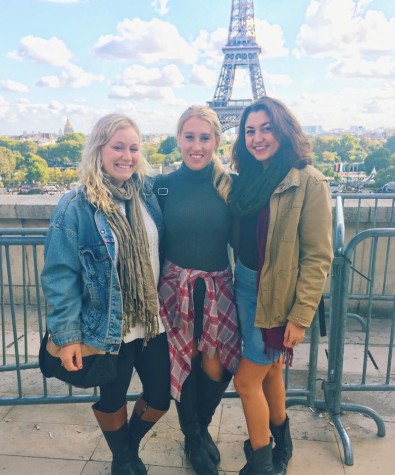
There was a lot on Smith’s mind. She was concerned for Dibra and it didn’t help that they were not together.
What if I had decided to stay in Paris, thought Smith. “Who’s to say that we wouldn’t have gone out to one of those places.”
When Dibra went back to her apartment, she made sure she locked her door, closed the windows, and took the next best precaution she could think of in order to protect herself.
“I took a knee sock and stuffed a coffee mug in it so that I could use it as a weapon,” Dibra said. “Then I tried to sleep.”
Dibra’s mother called to tell her she wanted her to come home and booked a flight for the next coming Monday. Yet her friend was still in Brussels, and once ISIS claimed responsibility for the attack, everyone in Europe was on edge.
“We were both trying to find places to relocate,” said Dibra. “Abigail wasn’t sure if she could leave.”
***
Days after the attack, transportation wasn’t running. Everyone stayed indoors. There wasn’t heavy police activity in Crimée, the part of Paris Dibra lived in. She found this alarming, especially since she was so close to Republique, the area where the attacks had occurred.
The night of terror had passed. Saturday was somber, but Sunday brought a new beginning.
“That Sunday was a beautiful day,” Dibra started to say, “I went for a run. I was still nervous, but I knew I couldn’t hide away in my apartment forever.”
“What made me happy was that people were just like they had always been. They weren’t living in fear, the way the terrorists had wanted them to,” said Dibra.
Dibra felt that people should be solemn and silent, but she explained that the people of Paris have a different way of mourning.
“They laid flowers. They lit candles. They prayed and lived life,” said Dibra. “People were scared of what was going to happen next, but at the same time, they were trying to fight that fear.”
The same Monday Dibra was leaving was also the day Smith had class, the first time since the attacks.
“I really didn’t want to go. I didn’t want to go outside because I was scared, and I thought, ‘How am I going to not go outside?’ said Smith. “I had to go. I couldn’t live in fear. The weekend happened, and then Monday came and it was like a clean slate, almost.”
Smith added, “The way we figured it was that lightning doesn’t strike twice.”
“There were a few people that I’m friends with that were at the stadium watching the soccer game. They heard the explosion but didn’t understand what it was at first,” Smith started to say. “The class size at my school had definitely dwindled.
“One of my professors was at the concert hall with his daughter and lost her. It was all just so sad.”
Now back in New York, Dibra admits she was upset to leave Paris on such a short notice because it was obviously not a part of her plan, but with enough time to reflect on it, she wouldn’t do it any other way.
“If there was a ticket out there to stay or go home, I would go home again,” said Dibra. “I was petrified, scared, and I am still trying to ease back into normal life.”
Dibra said, “The odds of me being safe in Paris in the aftermath was probably higher than it had been before the attacks, but I desperately wanted to be reunited with my family.”
“My gut told me to go home, so I did,” added Dibra.
Smith’s father called her school to see if she could go home or if she could be with her family in Denmark. At first, Smith decided against it. She had a bigger concern at the moment – she feared she would not be allowed back into France.
To Smith’s surprise, getting back into the country was easier than she expected.
“We took a Mega Bus and when we got on the bus, they didn’t even check our passports or tickets the way they usually do. The way they’re supposed to,” said Smith. “It bothered me how easy it was to get back into the country.”
Much like Smith, Dibra found the fact that there was no enforcement on who gets to enter and leave a country alarming as well.
“No wonder something like this happened,” Dibra said. “That’s why this current refugee problem is so controversial. How do you know you’re safe if you don’t know who’s coming in and out of your country?”
Everything Dibra believed about Paris is still true, regardless of the heinous attacks.
“Paris is wonderful. It’s strong. Their people love life and are fighters. Paris was still as beautiful as it had been in the beginning,” said Dibra. “These people are open to one another. They aren’t racist, they don’t care about your religion or any of that.”
Dibra added, “All of that almost changed in one weekend. The whole weekend was filled with hate.”
It quickly began to melt away.
“Even with all that hate, it is still genuinely a city of love.”
***
The deadly attacks in Paris were caused by gunmen and suicide bombers that hit the Bataclan concert hall, a major sports stadium, restaurants and a bar, simultaneously leaving at least 129 people dead and hundreds more wounded.
The first of three explosions occurred outside the State de France stadium in the northern part of Paris where France was playing Germany in an international fútbol (soccer) game. A man wearing a suicide belt was reported to be prevented from entering the stadium after a routine security check detected explosives. The man backed away from security and detonated the explosives. The game, attended by President Hollande, was being broadcasted on Television. After a second man detonated his suicide belt outside a different stadium at 9:30 p.m. standard time, the president was rushed to safety for protocol. A third suicide bomber blew himself up at a fast-food outlet near the stadium, as well. The attackers all wore identical explosive vests.
The attacks were described as an “act of war” organized by the Islamic State militant group, but attacks were not to establish a central location for ISIS or to recruit future members of the organization. The attacks are believed to be ruthless propaganda to invoke and inspire fear amongst the world.
Gazmen Xhudo, the program director of Corporate Homeland Security and Management at Mercy College, also works as a special agent who responds to threats in the Department of Homeland Security. He’s been working around the clock ever since the attacks in Paris.
“It was a heinous attack,” Xhudo said. “Public news reports that the French knew it was coming.”
“This attack was shocking, but not unexpected,” said Xhudo.
It is the type of attack that ISIS and other terroristic groups have begun to adopt.
“The style of attack is not new. It’s similar to the one used in Mumbai, India, with extremist groups,” Xhudo added.
Recently, on Nov. 18, ISIS released videos that threatened America, warning that Washington D.C. and New York City is an attack that’s pending. Mayor de Blasio assured citizens that police are taking all necessary precautions in areas shown in the video and throughout the city.
Xhudo believes that the government is doing enough. Like him, people are working around clock since the attacks and threats have occurred.
The United States was first introduced to the terrorist group when a video, displaying the beheading of American Journalist, James Foley, went viral online. In the video, Foley recited a prepared statement criticizing the United States and its involvement in Iraq and Syria, as well as condemning his brother for serving in the United States Air Force. The assailant, Mohammed Emwazi, also recited a prepared statement and made demands that the government cease the 2014 American-led intervention in Iraq.
Emwazi, nicknamed “Jihadi John,” then beheaded Foley off camera and threatened to behead American Steven Sotloff if his demands weren’t met. The FBI later confirmed the authenticity of the video and the death of Foley. On Sept. 2, 2014, a video surfaced depicting the beheading of American journalist Steven Sotloff.
According to data collected by the New York Times, there have been 51 attacks directly linked to ISIS since Sept. 2014 and around 40 of those attacks took place in the Middle East while six took place in the western world. Most recently, these attacks have hit closer to home.
October 2014: A Muslim convert in Canada shot and killed a soldier at the National War Memorial in Ottawa and then stormed Canada’s Parliament, firing multiple times before authorities killed him.
February 2015: Two men living in Brooklyn were arrested and charged with plotting to fight for the terror group. Another person was charged with helping fund their activities
The question of whether or not the government is doing enough to protect the American people seems to resurrect itself over and over.
“The question is not ‘is the government doing enough?’ but instead, it is ‘is what we are doing enough that the probability of something to happen is unlikely?’” said Xhudo.
According to Xhudo, hitting high profile places like New York City or Washington D.C. are important for these terrorist organizations because they are both high profile media sites and are symbolic to the U.S. However, if they were hitting somewhere like Cleveland, Cincinnati, North Carolina, or Miami, those would be more shocking because striking fear is the goal of terrorist organizations.
***
On Dec. 2, the terror continued.
Fourteen people were killed and 21 injured in an Islamic extremist inspired terrorist attack. It consisted of a mass shooting and attempted bombing at the Inland Regional Center in San Bernardino, California.
Syed Rizwan Farook and Tashfeen Malik, a married couple, targeted a San Bernardino County Department of Public Health training event and a holiday party that held about 90 employees in a rented banquet room. Farook was an American-born citizen of Pakistani descent while his wife was a Pakistani-born living in the United States.
On Dec. 3, the FBI began a counterterrorism investigation due to the nature of the weapons and equipment used. A recent trip to and from Saudi Arabia and a Facebook post attributed to the shooters where they pledged allegiance to the leader of the Islamic State of Iraq and ISIL have confirmed that the attack was indeed international terrorism.
Dec. 6, President Barack Obama called the shooting an act of terrorism and the perpetrators were “homegrown violent extremists” who were inspired by foreign terrorist groups.
In light of the shooting, the governor of California, Scott Walker, is relaunching the “See Something, Say Something” campaign. Walker wants people who see suspicious behavior to call a toll-free line or go to the state’s website and report it.
Xhudo, himself, believes “See Something, Say Something” is very important when it comes to America and its citizens.
“When we look around us, we see so many heads down, in the city or even on campus. We’re very attached to our devices,” Xhudo said.
“We need to be more aware and take measures. Have more perspective,” added Xhudo as he referenced the planned Times Square bombing in 2010 that could have easily created a staggering number of casualties.
Prof. Matthew Miraglia, who teaches Homeland Security and Business, is a former nuclear biological weapon specialist in the Marines, and a retired police detective as an intelligence officer in the Counter Terrorism Unit. He believes that the American people need to look out for their own interest and that there is a reason why “see something, say something” is out there.
“It’s because the policy makers, law enforcement, and the intelligence agencies know there is a limit to what they can prevent and what they can stop,” said Miraglia. “They need the help of the American people. They need the American people to not walk around with their heads in the sand and to accept the reality that there are threats.”
A prime example of a nation who does this quite well is Israel, as Miraglia noted.
“They’re constantly under the threat of a terrorist attack, but their civilians are very aware and in tune with what’s going on and they are very diligent in their everyday lives,” Miraglia started to say. “Americans need to take example of how Israeli citizens are seeing something and saying something, and I believe we’re doing that.”
Miraglia added, “I believe that there are a lot of people in America who will speak out if they see something.”
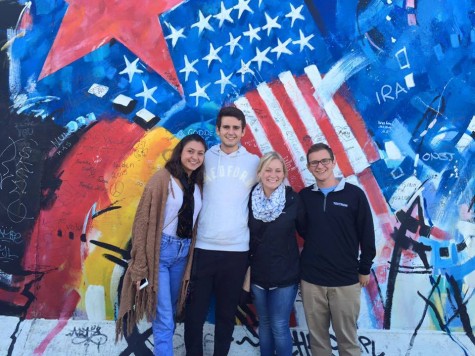 Miraglia gave a couple of examples such as the underwear bomber on the plane flying over to Detroit and the Times Square bomber.
Miraglia gave a couple of examples such as the underwear bomber on the plane flying over to Detroit and the Times Square bomber.
“He wasn’t stopped by the TSA or the FBI or National Security. The attack was thwarted by citizens on the plane who noticed the man trying to light the plastic explosives that were inside his underpants, on fire,” said Miraglia. “The time square bomber was not prevented or stopped by the NYPD or the FBI. It just so happened that a hot dog vendor was walking past the truck noticed wires sticking out of a propane tank and he reported it.”
Regardless of America’s policies, it often boils down to how diligent the civilians of a country are.
Miraglia, like many other professionals, believes that what we saw in California and Paris recently are deliberate attacks, called soft targets.
“People in charge of facilities, corporations, colleges and businesses need to find ways to reduce risk, and the best way to reduce risk is to harden their targets by putting more security protocol into place to make it more difficult for there to be a successful attack.”
“You’re never going to be able to completely eliminate threats. We hope we can prevent as many attacks as possible,” said Miraglia, “but we also need to know how to mitigate once these attacks occur.”
Miraglia added, that policies and procedures must be put in place to keep students and employees safe. “Do schools know how to evacuate students or have lock down? Those topics matter.”
Miraglia argues that America has been the target for quite some time now.
“If you go back to 9/11, we didn’t declare war on them, they declared war on us,” said Miraglia. “They attacked us on our soil and they didn’t just do that. They hit two of our embassies in Africa, they hit the U.S.S. Cole, and then they carried out the 9/11 attacks.
“(Extremists) declared war on us. Obviously, this isn’t at all a large percentage of Muslims, but these are extremists and we have to acknowledge the fact that they are at war with us,” said Miraglia.
Miraglia added, “We didn’t ask for this war. We didn’t want this war, but we are in a war.”
There is no denying, America is at war. However, this isn’t just a war between America and radical extremists. This has become a worldwide issue that affects all global citizens.
Like Miraglia and Xhudo stated, it is important not to live in fear, but to be aware.
Dibra has taken it one step further. To her, it is important for her to live her life. She still thinks of that night. Dreams of that night. But she knows she cannot run from that night. Because that is what they terrorists want. Instead, she chooses to live her life.
Which is why on Dec. 13, she is boarding a plane so she can see old friends. Her destination is Paris because she did not like how she left it. Her plan is to reunite with her beloved city, pay her respects, and bid the city of love a proper adieu.

Kayla Simas is a Journalism major at Mercy College. She's from the forgotten borough of New York - Staten Island. She's an avid coffee drinker and enjoys...
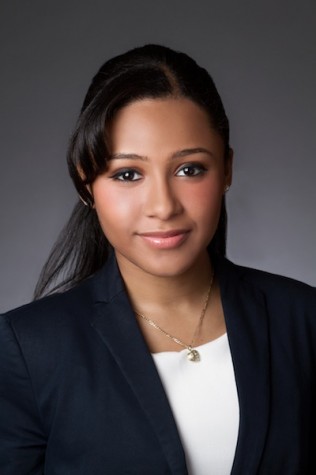
Tiffany is a Marketing Major and a Journalism minor at Mercy. She has been a ballet student for many years. She loves any sport you can bet on. She hates...



